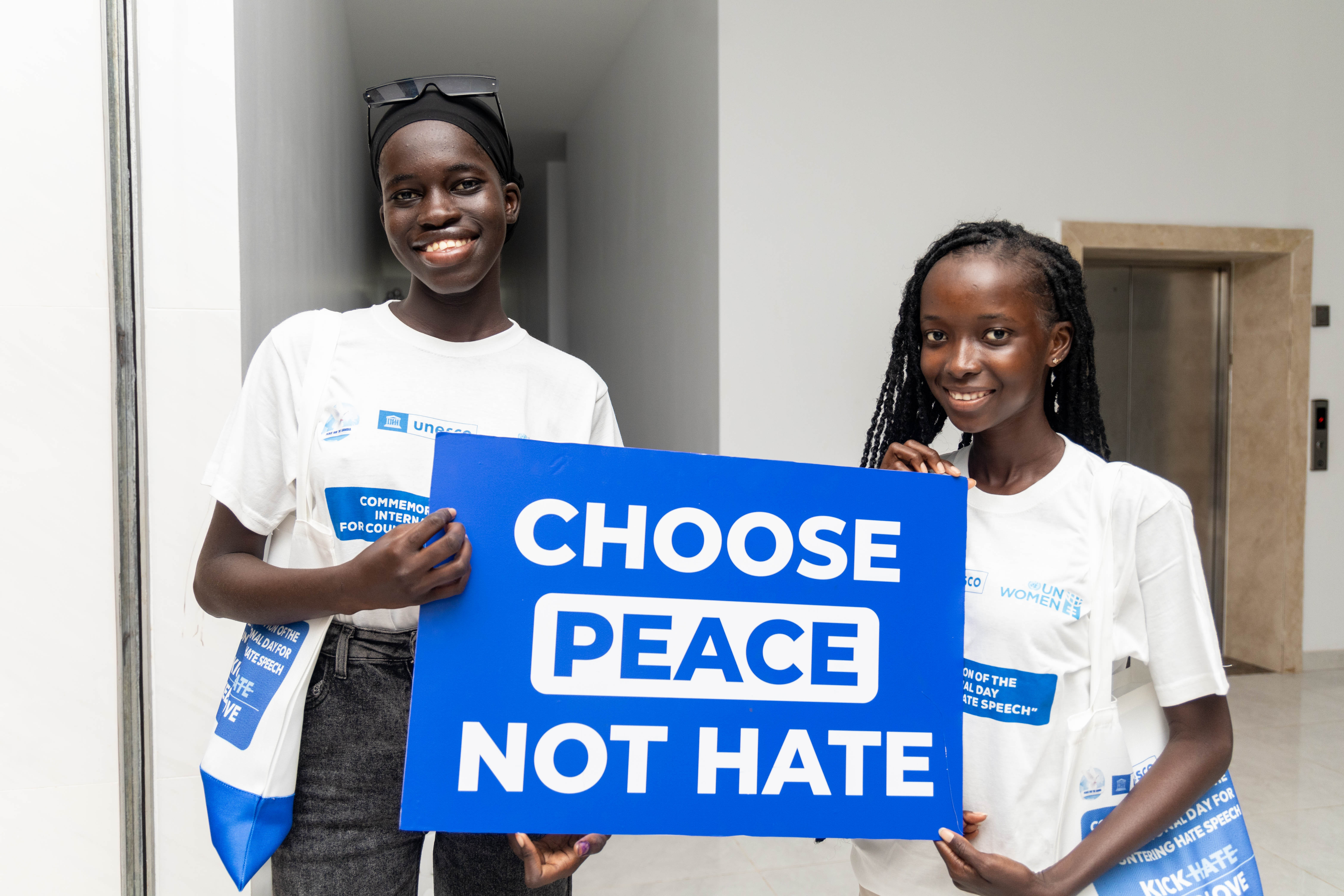The University of The Gambia, with technical support from UNESCO, has begun the process of integrating critical themes such as hate speech, fact-checking, media and disability, and artificial intelligence into the curriculum of tertiary media institutions. The initiative is part of a broader effort to strengthen peacebuilding and social cohesion in the country.
This move comes under the framework of a three-year project titled “Strengthening the National Infrastructure for Peace to Promote Social Cohesion in The Gambia,” which is funded by the United Nations Peacebuilding Fund. The project is being implemented by UNESCO, UNDP, and the International Trade Centre, in close collaboration with the Government of The Gambia and a wide range of national stakeholders, including youth groups and civil society organizations.
At a recent brainstorming session in Banjul, key stakeholders emphasized the urgency and importance of equipping future media professionals with tools to navigate the complexities of the modern media landscape responsibly.
Professor Melchizedek Onobe, Dean of the University of The Gambia School of Journalism and Digital Media, described the draft curriculum as a timely and necessary intervention. “I believe that this curriculum has the potential to make a significant impact on promoting peace and social cohesion in The Gambia,” he said. He also noted that the curriculum aims to nurture creative skills that empower students to tackle issues of information integrity with nuance and innovation.
UNESCO’s engagement in the project is closely aligned with the UN’s Strategic Action Plan on Hate Speech, which seeks to address hate speech and disinformation as threats to democratic societies and peaceful coexistence. Through this curriculum, the goal is not only to mitigate these issues but also to build a stronger national peacebuilding architecture.
Speaking on behalf of the UN Resident Coordinator, Peacebuilding Fund Coordinator Ms. Golda Keng stressed the broader vision of the initiative: “The draft curriculum is not just about training future journalists; it is also about equipping them with the tools to report responsibly, to uphold ethical standards, and to contribute to a society that values truth, dialogue, and peaceful coexistence.”
Lamin Jarjou, Senior Programme Officer at UNESCO NATCOM (Gambia), further emphasized the importance of this step for both the media sector and national development. “The need to mainstream education on hate speech, fact-checking, media and disability, and media and artificial intelligence into the curriculum is of great importance not only to media institutions but also to the broader development of society,” he said.
Jarjou highlighted the fast-changing nature of global media and the challenges it presents. He argued that preparing students to meet these challenges is vital for building a media sector that is inclusive, ethical, and forward-looking.
The draft curriculum is currently undergoing a validation process, which includes consultation with media professionals, curriculum developers, and other relevant stakeholders. Once finalized, the curriculum is expected to empower students with critical skills to:
- Identify and counter hate speech.
- Develop analytical and fact-checking skills to address misinformation and disinformation.
- Promote inclusive media practices that consider people with disabilities.
- Engage thoughtfully with the opportunities and ethical dilemmas presented by artificial intelligence in media.
By embedding these themes into media education, The Gambia is positioning itself at the forefront of a much-needed shift in how journalists are trained—ensuring that the next generation of media practitioners are not only storytellers but also guardians of truth and social harmony.








